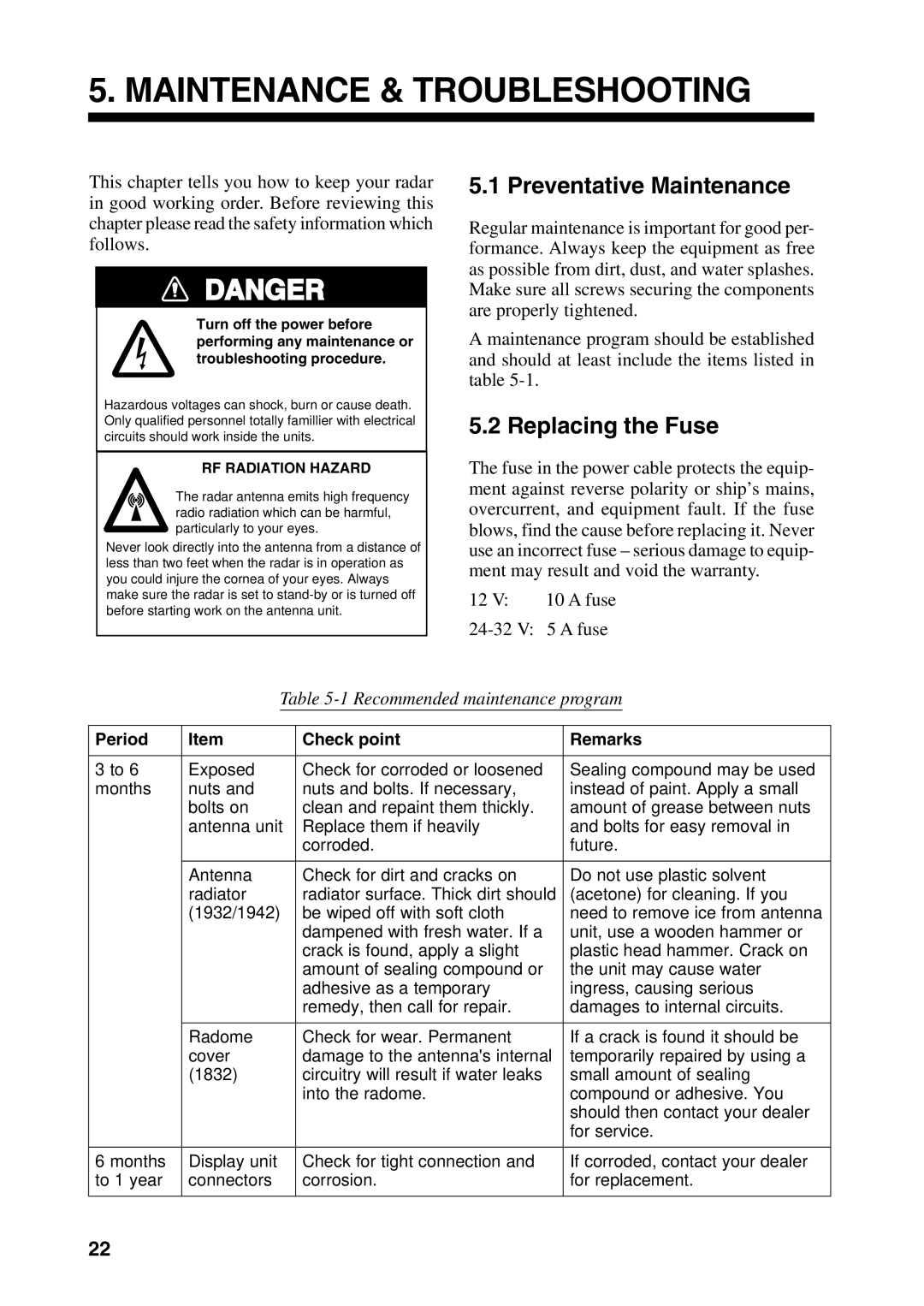
5. MAINTENANCE & TROUBLESHOOTING
This chapter tells you how to keep your radar in good working order. Before reviewing this chapter please read the safety information which follows.
![]() DANGER
DANGER
Turn off the power before performing any maintenance or troubleshooting procedure.
Hazardous voltages can shock, burn or cause death. Only qualified personnel totally famillier with electrical circuits should work inside the units.
RF RADIATION HAZARD
The radar antenna emits high frequency
radio radiation which can be harmful, particularly to your eyes.
Never look directly into the antenna from a distance of less than two feet when the radar is in operation as you could injure the cornea of your eyes. Always make sure the radar is set to
5.1 Preventative Maintenance
Regular maintenance is important for good per- formance. Always keep the equipment as free as possible from dirt, dust, and water splashes. Make sure all screws securing the components are properly tightened.
A maintenance program should be established and should at least include the items listed in table
5.2 Replacing the Fuse
The fuse in the power cable protects the equip- ment against reverse polarity or ship’s mains, overcurrent, and equipment fault. If the fuse blows, find the cause before replacing it. Never use an incorrect fuse – serious damage to equip- ment may result and void the warranty.
12 V: | 10 A fuse |
Table 5-1 Recommended maintenance program
Period | Item | Check point | Remarks |
|
|
|
|
3 to 6 | Exposed | Check for corroded or loosened | Sealing compound may be used |
months | nuts and | nuts and bolts. If necessary, | instead of paint. Apply a small |
| bolts on | clean and repaint them thickly. | amount of grease between nuts |
| antenna unit | Replace them if heavily | and bolts for easy removal in |
|
| corroded. | future. |
|
|
|
|
| Antenna | Check for dirt and cracks on | Do not use plastic solvent |
| radiator | radiator surface. Thick dirt should | (acetone) for cleaning. If you |
| (1932/1942) | be wiped off with soft cloth | need to remove ice from antenna |
|
| dampened with fresh water. If a | unit, use a wooden hammer or |
|
| crack is found, apply a slight | plastic head hammer. Crack on |
|
| amount of sealing compound or | the unit may cause water |
|
| adhesive as a temporary | ingress, causing serious |
|
| remedy, then call for repair. | damages to internal circuits. |
|
|
|
|
| Radome | Check for wear. Permanent | If a crack is found it should be |
| cover | damage to the antenna's internal | temporarily repaired by using a |
| (1832) | circuitry will result if water leaks | small amount of sealing |
|
| into the radome. | compound or adhesive. You |
|
|
| should then contact your dealer |
|
|
| for service. |
|
|
|
|
6 months | Display unit | Check for tight connection and | If corroded, contact your dealer |
to 1 year | connectors | corrosion. | for replacement. |
|
|
|
|
22
